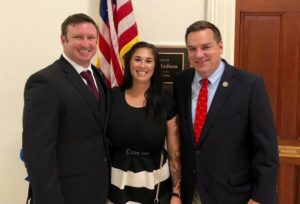In the realm of military service, the sacrifices made by soldiers are often extolled and rightfully so. However, there exists a lesser-known aspect of military service that deserves attention—the aftermath of medical malpractice incidents within the military healthcare system. Amidst the challenges faced by victims of such negligence, nonprofit organizations play a pivotal role in providing support, advocacy, and assistance. In this comprehensive exploration, we delve into the indispensable role of these organizations in advocating for justice and supporting military medical malpractice victims.
Understanding the Landscape
Military medical malpractice occurs when a healthcare provider in a military facility fails to provide proper medical treatment, resulting in harm to a service member or their dependents. These incidents can range from misdiagnoses and surgical errors to medication mistakes, often leaving victims with debilitating injuries, lifelong disabilities, or even fatalities.
The unique nature of military service introduces complexities that distinguish military medical malpractice cases from their civilian counterparts. The hierarchical structure of the military, combined with the doctrine of sovereign immunity, presents significant hurdles for victims seeking accountability and compensation. Additionally, the Feres Doctrine—a legal doctrine that bars service members from suing the government for injuries incurred during service—further complicates the pursuit of justice for medical malpractice victims within the military context.
The Challenges Faced
Military medical malpractice victims encounter numerous hurdles in seeking justice and compensation. The Feres Doctrine, established by the U.S. Supreme Court in 1950, has been a longstanding impediment to legal recourse for service members and their families. This doctrine prohibits service members from suing the federal government for injuries that arise incident to military service, including medical malpractice.
Moreover, navigating the intricacies of military law and the complex bureaucracy of the Department of Defense (DoD) can be daunting for victims and their families. The fear of retaliation or repercussions within the military hierarchy may deter victims from speaking out or seeking redress for the harm they have endured. As a result, many cases of military medical malpractice go unreported or unresolved, leaving victims without closure or compensation for their suffering.
The Role of Nonprofit Organizations
In the face of these daunting challenges, nonprofit organizations specializing in military advocacy emerge as invaluable allies for medical malpractice victims. These organizations are dedicated to supporting service members, veterans, and their families by providing a range of essential services:
- Legal Assistance: Nonprofits often provide pro bono legal counsel and representation to victims of military medical malpractice. Experienced attorneys specializing in military law navigate the complexities of the legal system on behalf of victims, advocating for their rights and pursuing avenues for compensation despite the obstacles posed by the Feres Doctrine.
- Advocacy and Policy Reform: Nonprofit organizations play a crucial role in advocating for policy changes aimed at reforming the military justice system to better serve medical malpractice victims. Through grassroots activism, lobbying efforts, and strategic partnerships with lawmakers, these organizations work tirelessly to raise awareness of the injustices faced by victims and to push for legislative amendments that would afford them greater access to justice.
- Emotional Support and Counseling: Coping with the aftermath of medical malpractice can be emotionally challenging for victims and their families. Nonprofit organizations offer counseling services, support groups, and peer-to-peer networks to provide emotional support and solidarity to those affected by medical negligence. These resources help individuals navigate the psychological impact of their experiences and find strength in community and camaraderie.
- Resource Referral and Assistance: Nonprofits serve as a vital link to resources and support services that aid in the recovery and rehabilitation of medical malpractice victims. From medical experts and rehabilitation specialists to financial assistance programs and vocational training, these organizations connect victims with the resources they need to rebuild their lives and regain their independence.
Conclusion: Seeking Justice and Support
In the face of daunting legal challenges and systemic barriers, nonprofit organizations stand as beacons of hope for military medical malpractice victims. Their unwavering commitment to advocacy, support, and empowerment empowers victims to assert their rights and seek redress for the harm they have endured. By providing legal assistance, advocacy, emotional support, and resource referral, these organizations play a vital role in ensuring that military medical malpractice victims receive the justice and compensation they deserve.
At ForTheMilitary.com, we recognize the invaluable contributions of nonprofit organizations in supporting military medical malpractice victims. Our experienced legal team is dedicated to providing compassionate guidance and zealous representation to victims and their families. If you or a loved one have been affected by military medical negligence, we are here to help. Contact us today to learn more about how we can assist you in seeking the justice and compensation you deserve.

 Call Now- Open 24/7
Call Now- Open 24/7





